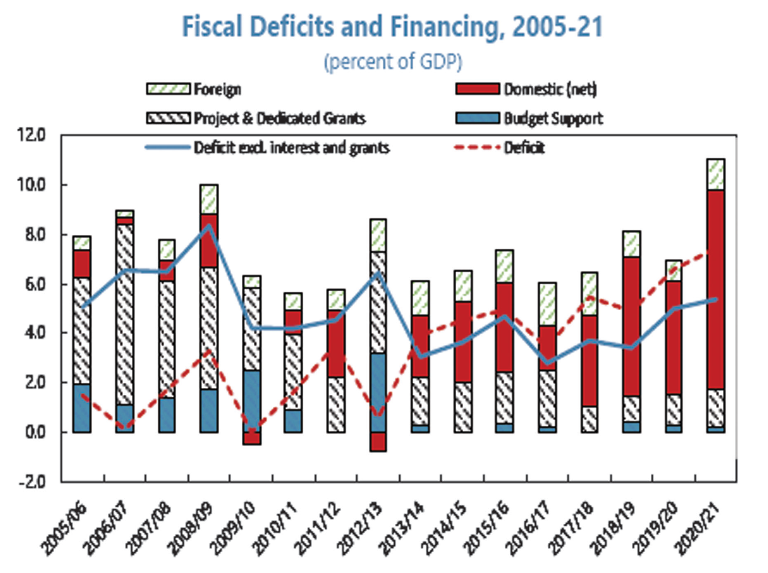Four-month deficit jumps to K202.5bn
Treasury has recorded a deficit of K202.5 billion in its budget operations in the first four months of this fiscal year, published figures from the Reserve Bank of Malawi (RBM) show.
The figures contained in the RBM October Monthly Economic Report published on Friday show that although revenue collections have been increasing in the four-month period to October, expenditures continue to outweigh the revenues.

In October alone, revenue collections amounted to K130.8 billion, which was a slight increase from K125.8 billion collected in September, expenditures on the other hand rose by 9.2 percent to K210.2 billion in the month under review.
Economists say the trend is worrisome, adding that the development will likely push Treasury to borrow domestically thus swelling domestic debt.
In an interview yesterday, Malawi University of Business and Applied Sciences associate professor of economics Betchani Tchereni said the widening fiscal deficit fuels debt on the domestic market.
“Financing deficits is mostly done through borrowing on the financial market within the country which may end up becoming very unsustainable and disturb the macro-economic environment,” he said.
In a separate interview, University of Malawi economics professor Ben Kaluwa said that the continued budget deficits have several implications, particularly on the successful implementation of the budget if the government fails to finance the deficit.
“The deficit increases the national debt, which causes economic instability if it reaches the levels that cannot be sustained,” he said.
In its latest country report for Malawi, the International Monetary Fund (IMF) also cautioned the widening fiscal deficits, saying such deficits funded by high-cost domestic borrowing poses a considerable risk to fiscal sustainability, with domestic debt service comprising an increasing share of revenues.
The IMF notes that budget deficits have remained high, reflecting limited adjustment in spending and low domestic revenue mobilisation.
Reads the IMF report in part: “Deficits have been financed mainly by costly domestic borrowing and the rising domestic financing since 2018 as well as borrowing from regional development banks on non-concessional basis has significantly increased Malawi’s public debt which stood at 55 percent of gross domestic product [GDP] in 2020.”
In view of the revenue under collections, the 2020/21 National Budget was revised upwards from K2.19 trillion to K2.334 trillion with total revenues and grants revised upwards from K1.435 trillion to K1.523 trillion, representing 16.5 percent of the country’s GDP.
The increase also triggered a yawning deficit from K755.1 billion to K810.7 billion, representing 8.8 percent of GDP which was to be covered through foreign financing of K246.3 billion, with the balance of K564.4 billion programmed to be financed through domestic borrowing.
Malawi’s fiscal deficits have resulted in unsustainable debt due to the rising domestic financing.





